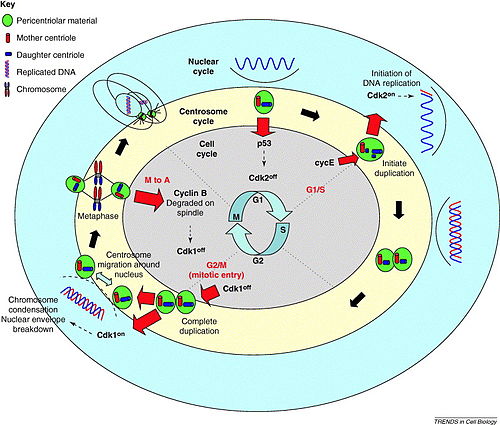Centrosomenoun
(cytology) An organelle, near the nucleus in the cytoplasm of most organisms, that controls the organization of its microtubules
Centrosomenoun
A peculiar rounded body lying near the nucleus of a cell. It is regarded as the dynamic element by means of which the machinery of cell division is organized.
Centrosomenoun
small region of cytoplasm adjacent to the nucleus; contains the centrioles and serves to organize the microtubules
Centrosome
In cell biology, the centrosome (Latin centrum 'center' + Greek sōma 'body') (also called cytocenter) is an organelle that serves as the main microtubule organizing center (MTOC) of the animal cell, as well as a regulator of cell-cycle progression. The centrosome provides structure for the cell.
Chromosomenoun
A linear arrangement of condensed DNA and associated proteins (such as chaperone proteins) which contains the genetic material (genome) of an organism.
Chromosomenoun
One of the minute bodies into which the chromatin of the nucleus is resolved during mitotic cell division; the idant of Weismann.
Chromosomenoun
a threadlike body in the cell nucleus that carries the genes in a linear order
Chromosome
A chromosome is a long DNA molecule with part or all of the genetic material of an organism. Most eukaryotic chromosomes include packaging proteins called histones which, aided by chaperone proteins, bind to and condense the DNA molecule to maintain its integrity.












